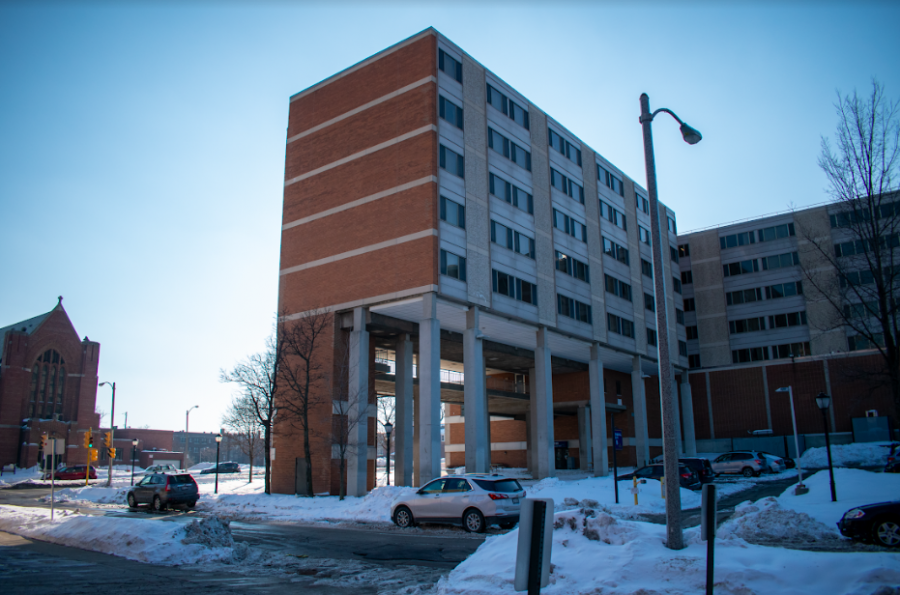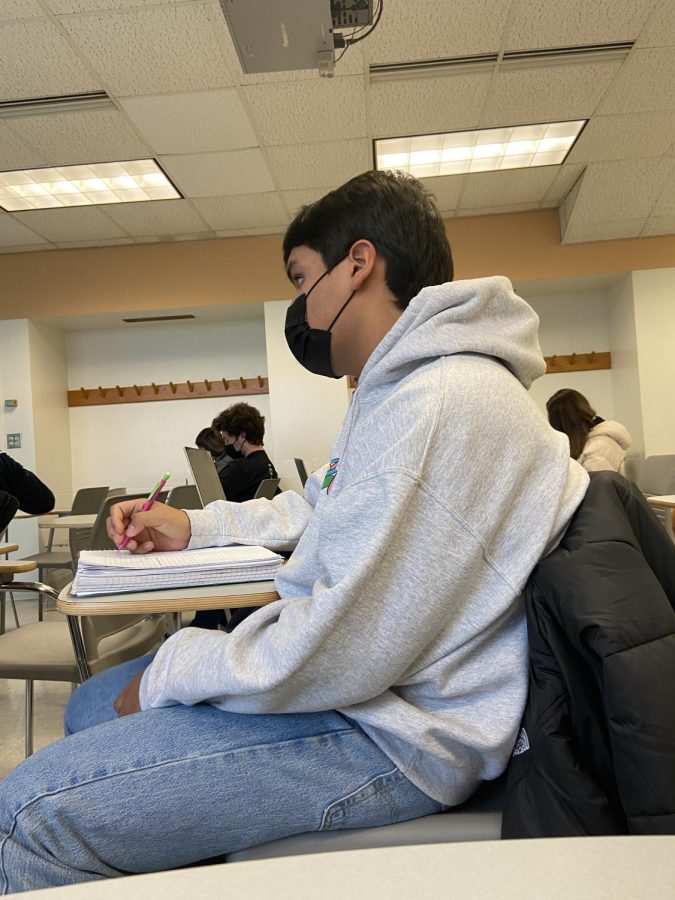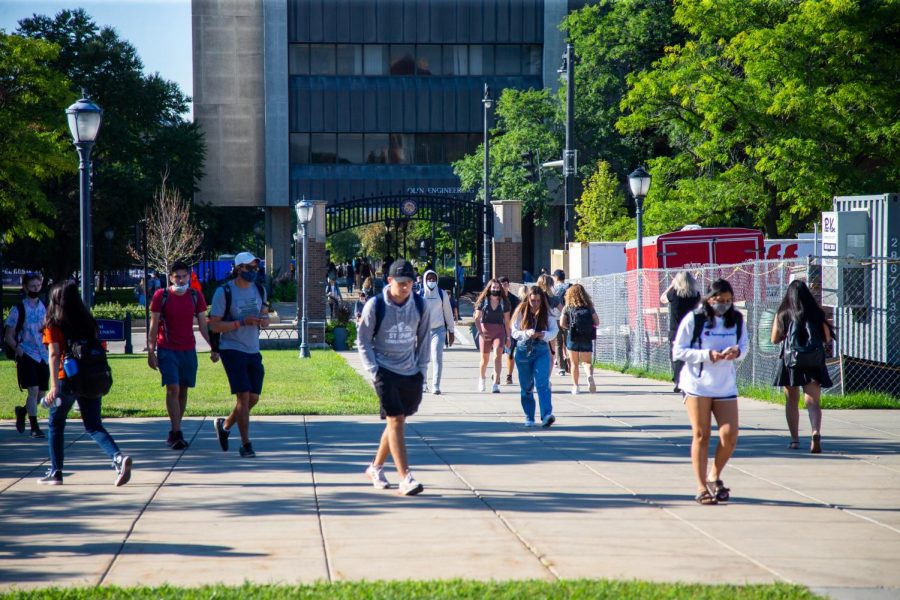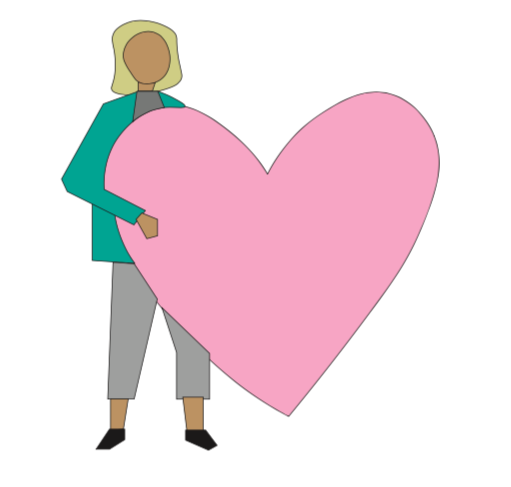While feelings of unproductivity and aimlessness tend to assume control over one’s emotional psyche during the coronavirus pandemic, it is healthier to accept that things will be out of control for awhile and to practice mindfulness.
The Midwest is always a dreary place during the winter. Media pieces can attempt to capture this atmosphere. The graphic novel “Blankets” by Craig Thompson contains some gorgeous yet gritty images of the melancholy haze that occurs during an upper-Midwestern winter — an unmistakable feeling of “gray” that lasts for months. January through March are often thought of as the worst months for this very reason.
This was true before the pandemic.
During a pandemic, when indoor places are closed, the situation darkens dramatically. Cabin fever grows more intense, a certain anxiety that stems from feeling isolated and the knowledge that you can do absolutely nothing to change it.
It is easy to tirelessly try to make things work anyway, to rile oneself up with panic, a fear of missing out and truly mourning the potential freedom. College years are often thought to be a person’s prime, allowing them to bask in all the glories of young adulthood without quite having as many real-life responsibilities. During the pandemic, however, young adults have to deal with the pervasive feeling of loneliness and may feel they are missing out on a true college experience.
When certain college experiences become regarded as cultural and social milestones, like going to crowded parties or sporting events, it is easy to think that the universe somewhat owes you this experience, and it becomes frustrating not being able to live in the moment, or get what everyone else is supposedly getting.
However, it is much more freeing to let go of the idea that the universe somehow cheated you. It is freeing to not ruminate on all the possibilities; It’s freeing to let go of the bitterness. Being mindful of the fact that things are just not good right now and that some experiences will just not be a reality might be the one way to rid yourself of these troubling emotions.
Mindfulness has been thought to affect the brain and its structure, and practicing it has shown to increase activity in the prefrontal cortex, which is associated with positive emotions.
In addition, it is important to accept the situation as it is. Acceptance, which is the last of the five stages of grief, can provide a sense of catharsis. Acceptance is not giving up nor losing hope, but rather acknowledging the facts of the present moment and choosing to accept certain truths of the reality around us.
Students can adopt certain practices to reduce anxiety, stress and loneliness. Journaling can help one recognize worrying, troubling or negative thoughts and help minimize stress by allowing someone to become more aware of their feelings and triggers. There are also sedentary hobbies students can engage in from their residence halls that can bring about a sense of accomplishment, like baking, knitting and even coloring.
Of course, even in accepting the reality of the pandemic, many students are still going through challenges, such as being stressed about the uncertainty of the future. These feelings are valid and should not be disregarded as unimportant. These types of indoor activities should not be mistaken for solutions to these struggles, but rather a way to cope with our reality.
Another way to cope is to connect with friends and family in order help ease tensions, whether through small groups in person or over the phone.
While the weather has been frigid these past weeks, it is gradually becoming warmer and sunnier as we enter springtime. In more favorable weather, taking walks and being immersed in nature are some safe activities students can engage in. The lure of springtime can be beneficial to students who may feel trapped in the midst of winter flurries during the coronavirus pandemic.
But it is also important to be aware of the volatility of weather and be content with the fact that despite some warm days, there will likely be more snowstorms and cold weather in the near future. It’s been about a year since the coronavirus restrictions were put in place in the United States. Nobody thought it would last this long, and it’s also clear that there is no real telling of when things will be safe enough for us to return to some kind of normalcy.
Accepting can be a freeing experience. In the transition between winter and spring I like to think of the Simon & Garfunkel song “A Hazy Shade of Winter.” Between the coronavirus pandemic and the winter months, things are definitely hazy. I particularly think of the lyrics “but if your hopes should pass away, simply pretend you build them again. Look around, the grass is high, the fields are ripe, it’s the springtime of my life.”
Because feeling present in the moment and being aware of environmental surroundings will make the days pass with more ease, and before we know it, the grass will grow, fields will ripen and springtime will arrive.
This story was written by Lucia Ruffolo. She can be reached at lucia.ruffolo@marquette.edu











